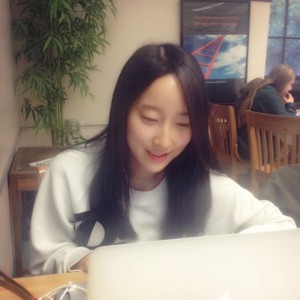
Sue Yoon is originally from Korea and completed her Bachelor’s degree in Linguistics and the Certificate in Second Language Acquisition and Teaching (SLAT) at the U of O. She is now working on concurrent MA degrees in Linguistics LTS and East Asian Languages and Literatures.
You are doing concurrent MA degrees in both Linguistics with a language teaching specialization (LTS) and East Asian Languages and Literatures (EALL). Can you tell us why you chose to do both degrees? How do you benefit from each department?
I got my undergraduate degree in linguistics from the University of Oregon and wished to continue studying linguistic characteristics of my native language in depth. I believed that having sufficient knowledge of linguistics would benefit me as a language teacher, which has always been a dream of mine, so I decided to apply to the M.A. Korean linguistics and pedagogy program at the University of Oregon as well as to LTS. I really enjoyed learning different language teaching techniques and approaches from a variety of LT courses at the undergraduate level, and they helped me broaden my perspective of language teaching to a large extent. I certainly benefit from both programs in many different ways. They perfectly match my areas of interest and allow me to develop a deeper understanding of language teaching and the Korean language system in order to become a more successful Korean language teacher. It is also intriguing to learn both theoretical knowledge and practical knowledge from the two programs.
What do you like best about teaching at the university?
There are a number of benefits of being a language GTF at the University of Oregon. First of all, I can gain professional knowledge about my fields of interest and more teaching experience simultaneously during my graduate studies. I also find it very helpful to apply what I have learned from the LT courses to my own teaching as the LT courses have certainly helped me understand what makes a good language teacher. Moreover, learning various aspects of the Korean language system from EALL (East Asian languages and literatures) courses helps me to better explain features of the Korean language to my students in the most effective manner when teaching at the university. Finally, I am so glad that I got the chance to meet my awesome students who are learning Korean at the University of Oregon!
For you, what is similar or different about teaching English vs. teaching Korean?
I have taught both English and Korean at a few different places in Korea and the U.S. I found teaching English quite different from teaching Korean. As I was teaching Korean, I have realized that being a native speaker of the language does not mean that it is easier to understand the language system. I learned English as my second language, and this helps me identify and understand areas of potential difficulty faced by learners of English as I underwent the same language learning. I usually feel more comfortable and confident when teaching Korean as it is my native language, but it is sometimes quite difficult to provide my learners with what they really need in order to understand a specific aspect of the language and understand their problems and difficulties from their perspective. However, I have really enjoyed the experience of teaching both languages!
What advice would you give applicants who might want to do concurrent MA degrees like you are?
There are a lot of great courses provided at the University of Oregon, and I believe that being able to do a concurrent MA degree can help students further broaden their knowledge in two different areas of study that they are interested in. It has been a wonderful experience taking a variety of courses and meeting such a great group of people in the two programs!
